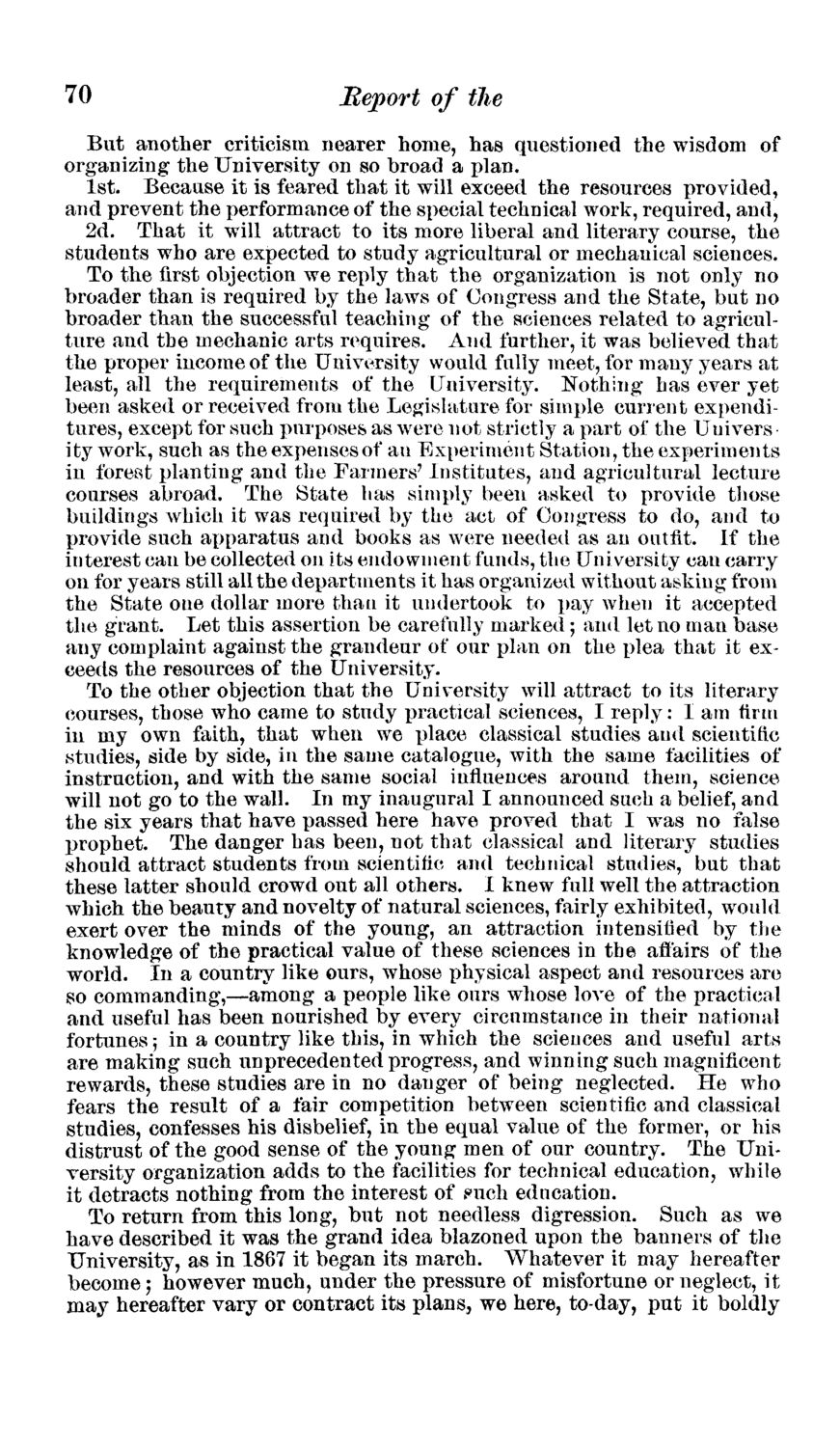| |
| |
Caption: Board of Trustees Minutes - 1874
This is a reduced-resolution page image for fast online browsing.

EXTRACTED TEXT FROM PAGE:
70 Heport of the But another criticism nearer home, has questioned the wisdom of organizing the University on so broad a plan. 1st. Because it is feared that it will exceed the resources provided, and prevent the performance of the special technical work, required, and, 2d. That it will attract to its more liberal and literary course, the students who are expected to study agricultural or mechanical sciences. To the first objection we reply that the organization is not only no broader than is required by the laws of Congress and the State, but no broader than the successful teaching of the sciences related to agriculture and the mechanic arts requires. And further, it was believed that the proper income of the University would fully meet, for many years at least, all the requirements of the University. Nothing has ever yet been asked or received from the Legislature for simple current expenditures, except for such purposes as were not strictly a part of the Uuivers ity work, such as the expenses of an Experiment Station, the experiments in forest planting and the Farmers' Institutes, and agricultural lecture courses abroad. The State has simply been asked to provide those buildings which it was required by the act of Congress to do, and to provide such apparatus and books as were needed as an outfit. If the interest can be collected on its endowment funds, the University can carry on for years still all the departments it has organized without asking from the State one dollar more than it undertook to pay when it accepted the grant. Let this assertion be carefully marked; and let no man base any complaint against the grandeur of our plan on the plea that it exceeds the resources of the University. To the other objection that the University will attract to its literary courses, those who came to study practical sciences, I reply: I am firm in my own faith, that when we place classical studies and scientific studies, side by side, in the same catalogue, with the same facilities of instruction, and with the same social influences around them, science will not go to the wall. In my inaugural I announced such a belief, and the six years that have passed here have proved that I was no liaise X^rophet. The danger has been, not that classical and literary studies should attract students from scientific and technical studies, but that these latter should crowd out all others. I knew full well the attraction which the beauty and novelty of natural sciences, fairly exhibited, would exert over the minds of the young, an attraction intensified by the knowledge of the practical value of these sciences in the affairs of the world. In a country like ours, whose physical aspect and resources are so commanding,—among a people like ours whose love of the practical and useful has been nourished by every circumstance in their national fortunes ; in a country like this, in which the sciences and useful arts are making such unprecedented progress, and winning such magnificent rewards, these studies are in no danger of being neglected. He who fears the result of a fair competition between scientific and classical studies, confesses his disbelief, in the equal value of the former, or his distrust of the good sense of the young men of our country. The University organization adds to the facilities for technical education, while it detracts nothing from the interest of euch education. To return from this long, but not needless digression. Such as we have described it was the grand idea blazoned upon the banners of the University, as in 1867 it began its march. Whatever it may hereafter become; however much, under the pressure of misfortune or neglect, it may hereafter vary or contract its plans, we here, to-day, put it boldly
| |